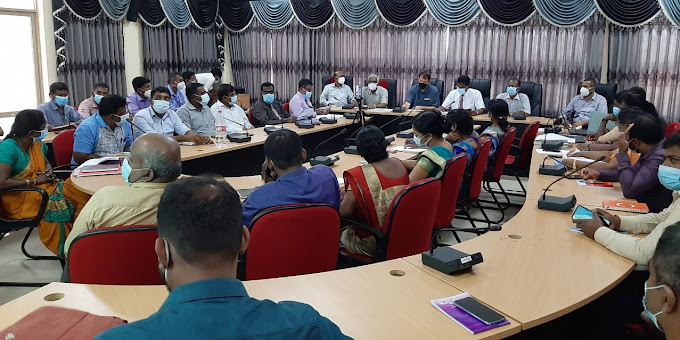 |
| Mr. Stephen Danyo and the World Bank team looking at ZECC intently on the left and Farm Manager Mr. K. Keerthihan explaining the ZECC on the right |
The ZECC an alternative of the common refrigerator. This is an on-farm storage chamber for fresh fruits, vegetables and flowers to extend their marketability. Storage of fresh horticultural produce after harvest is one of the most pressing problems of a tropical country like Sri Lanka. Due to high moisture content in the country, fruits and vegetables have very short life and are liable to spoil.
The ZECC can be constructed easily too. The chamber can keep the temperature lower than the outside temperature and maintain about 90% relative humidity. The ZECC would be ideal to use in the dry zone where the Climate Smart Irrigated Agriculture Project (CSIAP) is being implemented. The project is taking initiatives to introduce ZECC in its project area. The major advantage of cool chamber storage was the maintenance of fruits and Vegetables’ firmness by lowering the physiological loss in weight (PLW) and other metabolic processes. Eventually, 3 to 5 days more shelf life of fruits and vegetables could be obtained in cool chamber storage.
Mr.
Stephen Danyo, Sector Leader for Sustainable Development with Mr. S. Manoharan,
Senior Consultant (Agriculture, Food & Rural Development), Dr. Athula
Senaratne, Senior Agriculture Specialist & Kanishka Balasuriya, Consultant
at the World Bank visited recently to the District Agriculture Training Center
At Oddusudan, Mullaitivu to explore activities of the Climate Smart Irrigated
Agriculture Project (CSIAP) and Mr. Danyo was very much interested in ZECC too.











